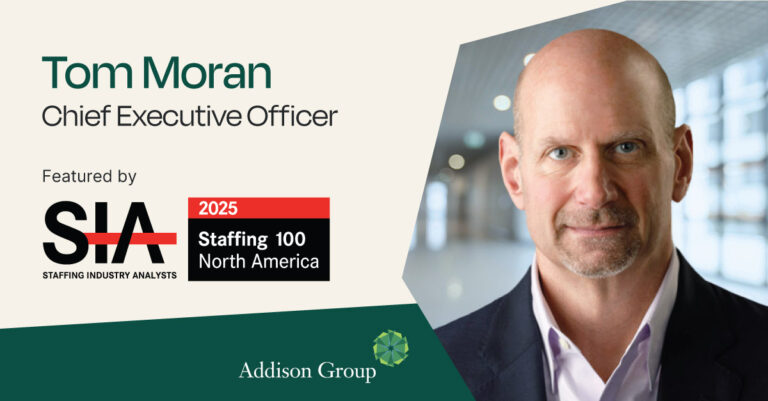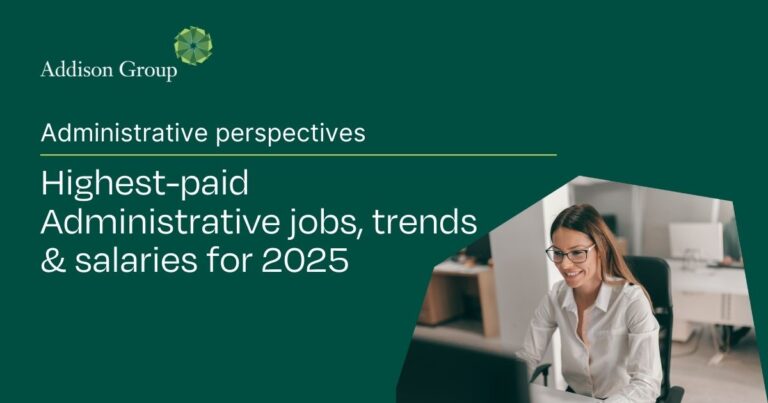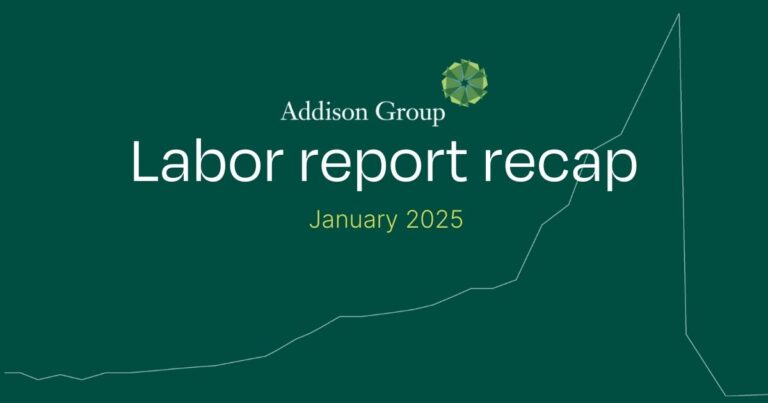How impending US tariffs could affect the finance and accounting job market

As the US signals new rounds of tariffs on imported goods—particularly from key trade partners like China, Mexico, and the European Union—companies across industries are bracing for the ripple effects. While the conversation around tariffs typically focuses on manufacturing and consumer pricing, the financial implications run deeper, with the Finance and Accounting (F&A) job market poised for notable shifts. From strategic realignment to hiring model pivots, businesses will need finance and accounting professionals who can navigate volatility with agility and foresight.
Here’s how tariffs could affect hiring for finance and accounting teams.
1. Rising demand for strategic finance roles
Tariffs introduce uncertainty and complexity into a company’s cost structures and supply chains. As a result, organizations will increasingly rely on finance professionals to model various scenarios, forecast the financial impact, and advise on cost mitigation strategies.
Expect growing demand for roles such as:
- Financial Analysts specializing in scenario modeling and cost forecasting
- FP&A (Financial Planning & Analysis) skilled at interpreting macroeconomic trends
- Treasury Analysts focused on cash flow optimization and currency risk
- Supply Chain Finance experts who can evaluate end-to-end cost implications
2. Increased focus on tax and compliance professionals
Tariff changes often come with regulatory shifts. Companies importing raw materials or components will need professionals who can decipher complex customs rules and international tax laws resulting in:
- Heightened demand for indirect tax specialists and customs compliance analysts
- Contract and project-based hiring to address short-term surges in compliance workload
- Increased value placed on international accounting certifications and experience with multi-jurisdictional tax regimes
3. Shift from operational to strategic accounting
With costs rising due to tariffs, the role of accountants is evolving. Organizations will look beyond transaction processing to strategic support, demanding deeper insight into cost control and operational efficiency. Key roles impacted:
- Cost accountants to assess the impact of tariffs on production and inventory
- Management accountants to advise leadership on margin preservation
- Finance business partners embedded with operations, procurement, and logistics
4. Temporary slowdowns, workforce reductions, and restructuring
In the short term, some sectors may pause hiring or restructure finance teams in response to shifting economic conditions. This could include:
- Hiring freezes in export-heavy industries or manufacturers heavily reliant on foreign inputs
- Layoffs or reassignments in accounting departments as budgets tighten, especially in sectors adversely affected by tariffs
- Movement toward shared services or outsourcing to control costs
5. A balanced workforce mix
To remain agile during economic uncertainty and potential tariffs, companies are adopting a more balanced workforce strategy – combining permanent F&A talent with flexible contract resources. This approach allows organizations to:
- Maintain operational stability and protect critical institutional knowledge with a strong core of permanent employees
- Adjust labor costs quickly by deploying contract workers as tariffs impact supply chains and operating margins
- Tap specialized expertise for rapid financial modeling, regulatory compliance, and tariff impact analysis
- Minimize long-term workforce liabilities while maintaining flexibility to respond to volatile market conditions
6. Upskilling and reskilling become critical
As economic conditions evolve, so do the skillsets employers need. F&A professionals will need to stay competitive by:
- Learning data analytics tools and ERP systems that enable real-time reporting and forecasting
- Gaining familiarity with trade law, international finance, and regulatory compliance
- Strengthening soft skills like adaptability, communication, and strategic thinking
While tariffs may not directly target the finance and accounting profession, their broader economic effects ripple into hiring trends, role expectations, and business priorities. Professionals who stay ahead of these shifts—by aligning their skills with emerging needs—will be best positioned to navigate the disruption and add strategic value to their organizations.
Amid potential changes from the tariffs, being prepared for any changes in your workforce is critical. Developing strategic hiring plans may be difficult on your own, but a partner like Addison Group adds ease to the process. For more than 20 years, we’ve focused on quality, not quotas. We place qualified finance and accounting talent to help move your business forward. Let’s talk about how we can help fill your open positions.









